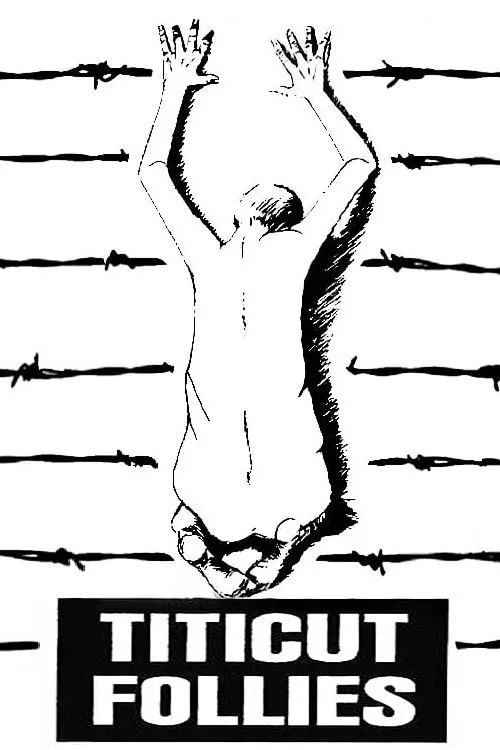Titicut Follies

Plot
Titicut Follies is a landmark documentary film directed by Frederick Wiseman, released in 1967. The film is an exposé of the deplorable conditions and treatment of patients at the Massachusetts State Prison for the Criminally Insane, located in Bridgewater, Massachusetts. The prison, colloquially known as Bridgewater State Hospital, is home to some of the most disturbed and violent individuals in the state. The film begins with a seemingly mundane tour of the prison's facilities, conducted by a senior administrator. However, as the tour progresses, it becomes evident that the reality of life at Bridgewater is far from benign. The camera captures images of cramped and unsanitary living quarters, overcrowded wards, and inmates who appear to be suffering from a range of mental health issues, including schizophrenia, depression, and anxiety disorders. One of the most striking aspects of the film is its portrayal of the treatment of inmates at the prison. The staff, which includes doctors, nurses, and psychiatrists, seem more interested in maintaining order and control than in providing care or compassion to their patients. Inmates are subjected to physical and emotional abuse, including being handcuffed, chained to their beds, and subjected to forced medication. The use of physical restraints is a recurring theme throughout the film, often leaving patients battered and bruised. Furthermore, the film reveals a culture of institutionalized racism, with African American inmates being subjected to particular forms of mistreatment. They are often relegated to the most basic and unsanitary living quarters, and are frequently singled out for punishment and mistreatment by the staff. The camera captures images of inmates being belittled and humiliated by staff members, who often use abusive language and physical aggression to maintain control. The social workers and psychiatrists at Bridgewater are portrayed as being more interested in maintaining the status quo than in providing genuine care or support to their patients. They are often depicted as being disconnected from their patients, failing to engage with them on an emotional level or to provide meaningful support. In several scenes, patients are seen struggling to communicate with their psychiatrists, only to be met with dismissive or condescending attitudes. One of the most disturbing aspects of the film is its portrayal of the use of physical and chemical restraints to control patients. Inmates are often handcuffed, strapped to their beds, or sedated with tranquilizers to render them docile and compliant. This use of force is often accompanied by the use of derogatory language and humiliation, leaving patients feeling belittled and demoralized. Throughout the film, Wiseman also captures the surreal atmosphere of the prison, where the boundaries between reality and fiction are blurred. The patients, many of whom are struggling to cope with their mental health conditions, engage in bizarre and often disturbing behavior, including singing and dancing in a makeshift theater. The performance, known as the "Follies," is a macabre spectacle that serves as a coping mechanism for the patients, but also highlights the extent to which they have been institutionalized and disconnected from the outside world. Despite the grim subject matter, the film is shot in a matter-of-fact style, with Wiseman eschewing sensationalism and melodrama in favor of a stark and unvarnished portrayal of life at Bridgewater. The cinematography is crisp and detached, capturing the drab and institutional architecture of the prison, as well as the harsh facial expressions of the inmates. Titicut Follies was initially banned in Massachusetts due to its graphic content, but it has since become a landmark of documentary filmmaking. Its critique of the deplorable conditions at Bridgewater and the broader psychiatric establishment has sparked numerous investigations and reforms, highlighting the importance of documentary filmmaking in exposing social injustices and promoting change.
Reviews
Recommendations



